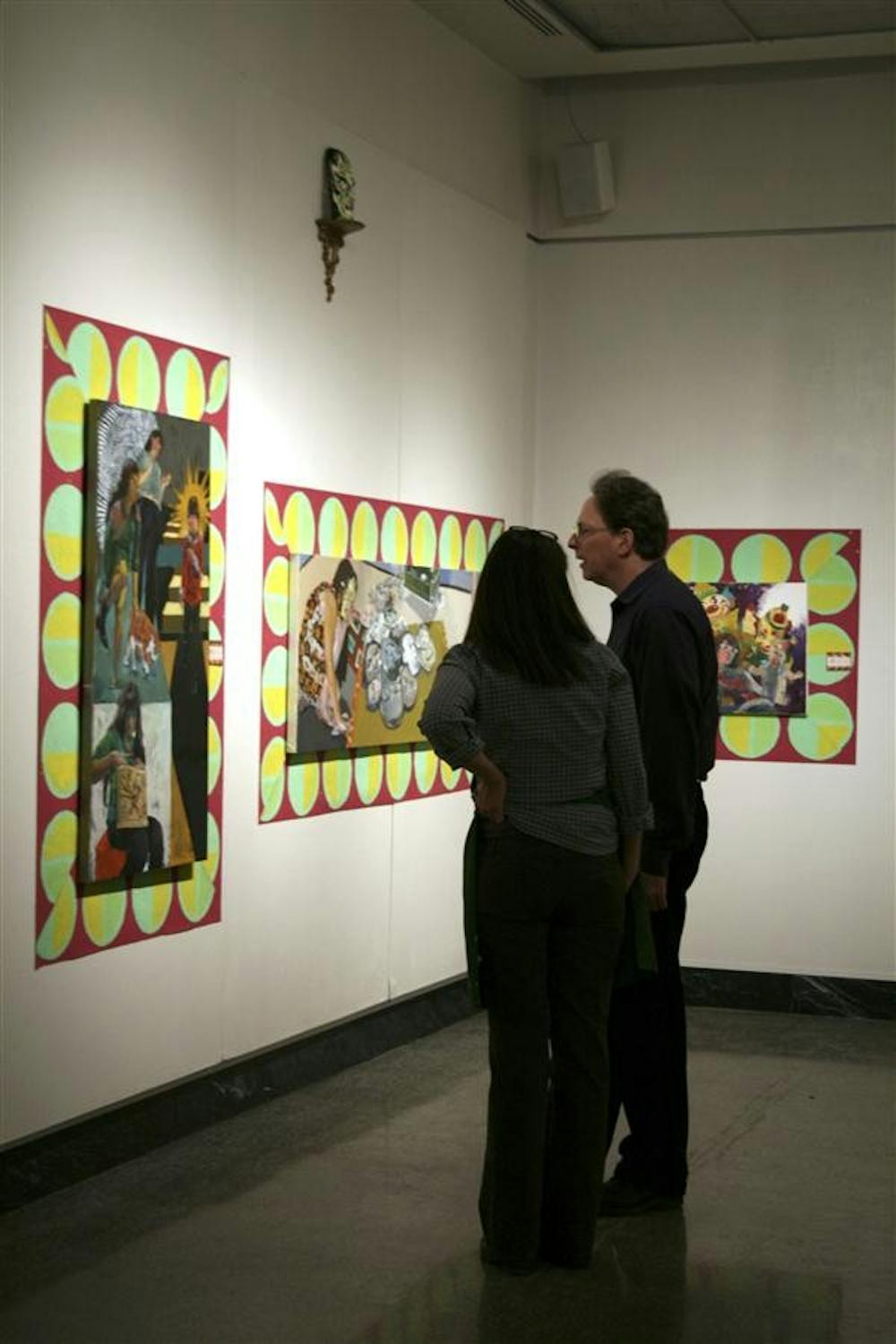Students everywhere have heard it: the economy sucks, and jobs are tight. But for School of Fine Arts graduates, whose majors have stereotypically been associated — rightly or wrongly — with the idea of the starving artist, the outlook might be a bit more bleak.
However, that doesn’t mean all hope is lost. It just means they might have to be a bit more creative — which, after all, shouldn’t be much of a problem.
According to the U.S. Bureau of Labor Statistics, about 60 percent of artists — whom they define as those who create art to communicate ideas, thoughts or feelings — are self-employed, and competition for arts-related jobs is expected to increase.
“Art students are screwed from the moment they get accepted into a program,” said Alessandra Sulpy, a soon-to-be master’s of fine arts graduate. “They all know in the back of their mind they will, in four years’ time, be flipping burgers and painting in a basement. But if you love it enough to choose art regardless, you’ve already made the decision to struggle to do what makes you happy for the rest of your life.”
Sulpy, who majored in painting, wants to pursue a career in teaching, preferably at the college level. However, if it came down to it, she said she would be open to the possibility of teaching at the high school level.
She said although her degree is in fine arts, she feels prepared to take on a teaching position.
“Almost everybody who comes into the MFA program gets a teaching position, unless they really don’t want it,” she said. “So as soon as you come into the program, you’re required to take a teaching class. ... IU is great for teaching prep, since many MFA programs across the nation offer only teaching assistantships instead of directing your own class.”
Sulpy said that although she would love to teach, she would prefer to focus on painting. So, for now, she plans to continue her job search but also continue painting and applying for shows at local venues.
While Sulpy’s route is certainly one many students choose to take, others turn to their skill sets and interests outside the fine arts to blend their passion for art into more steady careers.
Soon-to-be graduate Corey McNair has a degree in engineering but decided to come back to school to earn a bachelor of fine arts in photography.
Now, he is pursuing a career in forensic photography, taking pictures of accident scenes and building defects.
“It’s as close as I can get to combining engineering and photography,” he said.
He said he landed on this career choice because forensic photographers are in high demand, particularly ones who have the skills to take a well-composed picture.
After Saturday’s graduation, McNair has an internship with an aerial photography company in San Jose, Calif., where he will take pictures of construction sites from a helicopter. After that, he hopes to land a position with a forensic photography firm in central California.
Ashley Flora, another soon-to-be BFA graduate, said she hopes to combine her passion for painting and her leadership, ethics and social action minor to find a job helping her community through art.
She will spend the summer in Kandern, Germany, working in what she calls a mix between an internship and a fellowship, with other, more established artists to create community art.
In Bloomington, Flora works with Girls Inc., and as a capstone project for her minor she taught a self-portrait workshop for the girls where they not only learned to paint but also discussed issues such as identity and self-perception, discussions she said art can facilitate. The girls’ work was then exhibited at the Waldron Arts Center.
“I like painting ... I’m really interested in being involved in whatever community I’m in,” Flora said. “In the future, I still want to do my own body of work and exhibit, but alongside, I enjoy getting the community involved in art.”
According to the U.S. Bureau of Labor Statistics, “competition for jobs as artists and related workers will be keen because there are more qualified candidates than available jobs.”
What does this mean for graduates?
“I feel like I have to burst out there as much as humanly possible, instead of just sit in that aforementioned basement, painting,” Sulpy said.
Grads get creative with job opportunities

Get stories like this in your inbox
Subscribe





